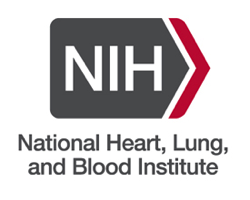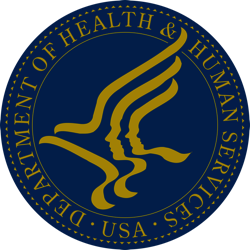
Lung disease lands thousands of patients in the hospital every year. And that’s where many of them stay, unable to breathe without a cumbersome respirator to help circulate air through their lungs.
Breethe Inc., a startup out of the University of Maryland, Baltimore, wants to change that experience. The company is developing a portable, artificial lung that will allow patients to continue treatment outside the hospital. Breethe on Monday announced it had finalized an agreement with UM Ventures, the university’s commercialization office, to license the technology behind its invention.

University of Maryland (UM) Ventures and Breethe, Inc. announced today that Breethe, an early-stage, Baltimore-based medical device company, has obtained exclusive rights to University of Maryland, Baltimore (UMB) intellectual property (IP) for the development of a wearable, portable blood pump oxygenator that will function as an artificial lung system for patients suffering from respiratory failure and cardiopulmonary collapse. Faculty at the University of Maryland School of Medicine (UM SOM) developed the core licensed technology, with Breethe also obtaining important supporting technology co-owned by UMB and University of Maryland, Baltimore County (UMBC) as part of the license agreement. The Breethe team plans to leverage the technology to bring the first wearable 'out-of-hospital' artificial lung system to market. UMB has made a $100,000 investment in Breethe through UM Ventures.

AstraZeneca's global biologics R&D arm MedImmune has received fast track designation from the US Food and Drug Administration (FDA) to develop MEDI8897, an investigational recombinant human immunoglobulin G1 kappa (IgG1κ) monoclonal antibody (mAb).
This monoclonal antibody is being examined for the prevention of lower respiratory tract illness (LRTI) caused by respiratory syncytial virus (RSV) in infants and young children.

All it takes is one hit. And Christy Wyskiel likes her chances.
Johns Hopkins University, where Wyskiel heads up technology commercialization, is among the institutions scrambling to transform more faculty research into startup companies, patents and licenses. Hopkins in 2014 reported $16.5 million in licensing revenue, but is still far behind universities that have been leaders in commercialization. Columbia University, for example, earned $150 million in licensing revenue last year.

BioHealth Innovation, Inc. (BHI), a public-private partnership and innovation intermediary is seeking an energetic and motivated life science professional for the role of an Entrepreneur-In-Residence (EIR) preferably with product development experience related to cardiovascular, pulmonary, or hematological innovations. The EIR will reside within the National Institutes of Health (NIH) and will also support intramural and extramural initiatives on an as needed basis.
The EIR program was established at BioHealth Innovation to:
- Retain and bring entrepreneurial talent to the Maryland ecosystem
- Connect resources including institutions, technology assets, people and capital within Maryland that include federal institutions, labs, academic institutions, small businesses, disease foundations and the investor community
- Build/support sustainable life science startups that will add value within the healthcare system and also build upon the existing infrastructure
The EIR will work with BHI leadership to ensure that the activities and outcomes are aligned with BHIs strategic focus.

Funding and Research Opportunities
The following funding opportunity announcements from the NHLBI or other components of the National Institutes of Health, might be of interest:
Notices:
- Notice of Potential Delays to NIH Issuing Awards in May 2015
- Racial and Ethnic Categories and Definitions for NIH Diversity Programs and for Other Reporting Purposes
- Reporting Publications in the Research Performance Progress Report (RPPR)
Program Announcements:
- Administrative Supplements for Tobacco Regulatory Research on Tobacco Flavors and Flavorings (Admin Supp)
- (PA-15-183)
- National Institutes of Health, Food and Drug Administration, National Cancer Institute, National Heart, Lung, and Blood Institute, National Institute on Alcohol Abuse and Alcoholism, National Institute on Drug Abuse, National Institute of Dental and Craniofacial Research, National Institute of Environmental Health Sciences, Office of Disease Prevention
- Application Receipt/Submission Date(s): Multiple dates, see announcement.
Please note that most links to RFAs, PAs, and Guide Notices will take you to the NIH Web site. RFPs will take you to FedBizOpps. Links to RFPs will not work past their proposal receipt date. Archived versions of RFPs posted on FedBizOpps can be found on the FedBizOpps site using the FedBizOpps search function. Under “Document to Search,” select Archived Documents.
National Institutes of Health
Food and Drug Administration
National Cancer Institute
National Heart, Lung, and Blood Institute
National Institute on Alcohol Abuse and Alcoholism
National Institute on Drug Abuse
National Institute of Dental and Craniofacial Research
National Institute of Environmental Health Sciences
Office of Disease Prevention
Application Receipt/Submission Date(s): Multiple dates, see announcement.

National Coordinator for Health Information Technology Karen B. DeSalvo, M.D., M.P.H., M.Sc., announced today the availability of $1 million in grant funds to support community projects for the Community Interoperability Health Information Exchange (HIE) Program. The funding will help support and enable the flow of health information at the community level, leading to better care and better health.
The Community Interoperability and HIE program will provide funds to up to ten community organizations, state or local government agencies, or other community groups. The awards will help unlock health information and better integrate community resources advancing better care and healthier communities.

In an effort to tap patient communities for insights on drug development, AstraZeneca has inked a five-year deal with PatientsLikeMe, according to a company statement.
Ed Godber, executive vice president of Life Sciences Ventures at PatientsLikeMe, said unlike most of its pharma collaborations, which have been with U.S. affiliates of drug companies, “this one integrates us into the engine of R&D globally. AstraZeneca is putting the patient voice and PatientsLikeMe into the DNA of their innovation process.”

To capitalize on the region's significant human capital and resources driving health innovation, BioHealth Innovation, Inc. (BHI) and ProductSavvy, in partnership with Montgomery County Department of Economic Development (DED), are launching a health technology accelerator program named, "Relevant Health." The accelerator will consist of a five-month intensive program focused on preparing eight early-stage health-related businesses for pilot product testing and financing. The program is scheduled to launch in September 2015 and will be located in the Rockville Innovation Center, part of the Montgomery County incubator network.
BHI is a public-private partnership that's been building programs to foster commercialization of health and life sciences assets in the Central Maryland region over the last three years.

Thursday, April 16, 2015, 03:00pm - 05:00pm
Event is open to Post-Docs & Professional Scientists currently work in the Therapeutic Areas of:
- Oncology
- Respiratory, Inflammation & Autoimmunity
- Cardiovascular & Metabolic Diseases
- Infectious Diseases & Vaccines
- Related scientific disciplines
Event will include music, lawn games, hors d'oeuvres, drinks and a scientific "Speed Networking" session.

Thursday, April 16, 2015, 07:30am - 09:00am
This is the first in our series of roundtables on what you need to know as a startup and emerging companies in the Life Sciences industry. The allure of "free money" inspires many life science companies to pursue government funding as an alternative to traditional equity or debt based financing. Unfortunately, nothing is "free" and government funding comes with its own organizational, management, accounting and compliance costs. This roundtable will reference the issues a company should consider when pursuing government funding and strategies for mitigating them. Topics addressed will include: finding and winning funding that is aligned with your corporate strategy, efficiently creating the infrastructure to manage compliant government contracts, managing your government partners/clients, and negotiating appropriate contracts and IP rights. This talk will reference existing life science government contracts ranging from $5M to over $200M and present both successful strategies and pitfalls to avoid. We will also talk through where government funding has provided the finances and credibility to springboard companies in their corporate growth.

Monday, April 20, 2015, 07:30am - 05:30pm
The Abell Foundation and BioMaryland have generously donated grants to be awarded to select faculty and company presentations from Johns Hopkins or the University of Maryland, Baltimore. The presentations will be voted upon by the industry boards and guests based on their ability to be translated to a commercial product. Register today to receive an advance copy of the updated meeting program featuring the agenda, bios of the presenters and non-confidential summaries of the technologies.